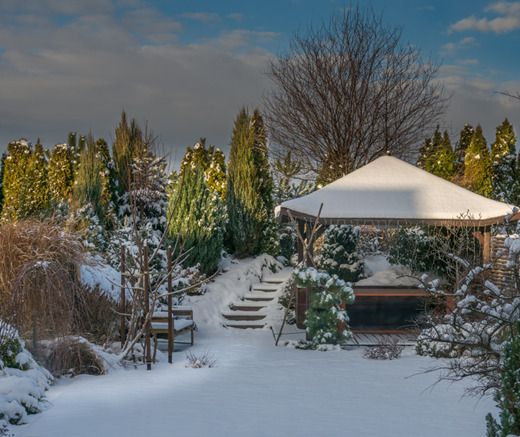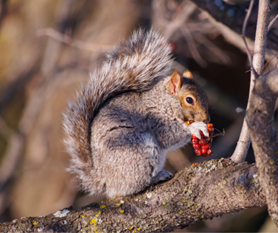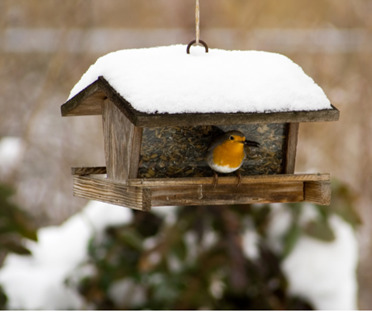
Winter is such a beautiful time of year, and it’s not all cold and snowy. It’s also an amazing time to enjoy the wildlife in our area. Whether you want to make your backyard a winter haven for birds or hibernating insects, there are many ways that you can add plants and food for winter wildlife interest.
Plant Evergreens
One of the best ways to provide natural shelter in the winter garden is by planting an evergreen hedge or tree. These plants will provide cover from predators and allow animals to nest underneath them if they choose. In addition, evergreens will block out wind and provide heat when needed during colder months, as well as shade on warmer days.
 Incorporate Plants with Seeds and Berries
Incorporate Plants with Seeds and Berries
Some plants have seeds that stay on the plant through winter, so if you have a garden, consider leaving any remaining plants that have seeds. You can also use perennial plants as a natural way to attract wildlife in your yard. Tall weeds like milkweed and amaranth provide important habitats for monarch butterflies and other pollinators. And bushes like huckleberry, blueberry, and rose hips provide food for birds and mammals during winter months.
Leave Some Areas for Shelter
Don’t bag up all your leaves; spread them on the flower beds; it’s good for your soil and provides shelter for frogs and insects. Leave some pots and piles of bricks lying around for frogs. Make or buy some bug hotels and other insects such as lacewings and ladybugs, or just drill some holes in a log! Build nesting boxes with an entrance hole big enough for an animal to enter and exit easily. In colder climates with snow cover, pile snow near plants to insulate them from cold air. If you have a compost heap, place hay bales on top of it so that animals can find food and cover.
 Feed Birds
Feed Birds
Attract birds by providing feeders filled with seeds and suet during the colder months. Be sure to keep the feeders clean by regularly sterilizing them. Bird feeders are busy in the winter and can spread disease.
Offer Water in Winter
Birds need water year-round, but in winter, it becomes more important for their survival. Even if the ground is frozen, there are ways to provide water for birds. Placing bird baths near windows or feeding stations will allow the birds to get close enough to drink from the bath.
For help with the design and maintenance of your winter landscape, give us a call at 360-574-8979.

